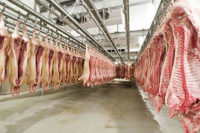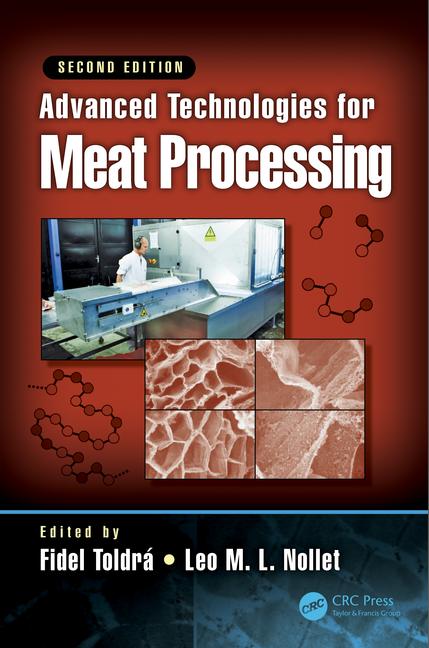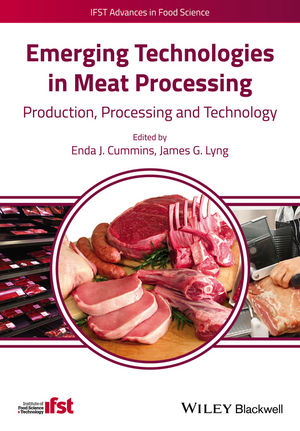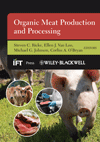A high-tech solution for sausage processing problems
Technologies that cut producers’ operating expenses while enhancing product quality are increasingly attractive.

Sausage processors face a bunch of operational issues.
Rising raw material prices, a shortage of qualified workers, and food safety threats make it increasingly challenging to produce cost-effective higher-quality products. In response, more processors are turning to cutting-edge technologies to better monitor and enhance operations.
“To maintain profits with the current inflation, there is the need to either increase the price of a product, identify cost savings by using least-cost formulations or adopt technologies to replace labor or increase throughput or quality,” says Jeff Sindelar, professor and extension meat specialist in animal sciences at the College of Agricultural and Life Sciences, University of Wisconsin, in Madison.
A shortage of highly skilled employees has caused some processors to replace as many workers as possible with automation, which can include using robotics to split carcasses, remove hides, and transfer products from conveyors, Sindelar says.
The greater availability of operational data from the myriad processing technologies, meanwhile, enables processors to better gauge whether the equipment is operating optimally and more easily pinpoint device inefficiencies. “It’s a big opportunity that not all processors are following,” Sindelar says.
Using auditing firms, consultants, or academics to review plant operations will help reveal shortcomings and possible solutions, he says. Enabling some employees to focus solely on process improvements or efficiencies also helps. “Auditing doesn’t have to be a two- or five-day affair,” Sindelar says. “It can just be a couple of hours to walk through the plant and understand the big parts of the process and the products at a higher level.”
Automation is their answer
Among the growing base of processors seeking high-tech enhancements is San Antonio-based sausage producer Kiolbassa Smoked Meats, which recently added new stuffing and linking equipment to create a more consistent sausage with a tender bite and firmer mouth feel, says Michael Kiolbassa, chief executive officer.
The operator is also considering incorporating additional technologies.
“We launched a Lean Six Sigma process and are looking at eliminating waste in every step of the process,” Kiolbassa says. Lean Six Sigma is a team-focused process improvement methodology designed to help companies improve performance by eliminating waste and defects in their operations.
In addition, Kiolbassa Smoked Meats is focusing on overall equipment effectiveness (OEE), he says, which identifies the percentage of manufacturing time that is truly productive. By enhancing plant efficiencies to compensate for its higher operating expenses, the processor is trying to minimize the price increases it passes on to customers, Kiolbassa says.
Other recent improvements include the addition of a new processing line in 2019, which Kiolbassa says is the company’s most efficient unit, and the elimination of slower-moving SKUs. Kiolbassa Smoked Meats reduced its SKU count about 35 percent over the past four years and now offers about 80 SKUs that include varieties of beef smoked sausage, Polish smoked sausage, jalapeno beef smoked sausage, chorizo Mexican-style sausage, and breakfast links, he says.
“We are constantly looking at innovation and creating new products because that is what the market demands,” Kiolbassa says. “You have to constantly cull the SKUs that aren’t performing to create production space to make new products.” Newer offerings include all-organic beef sausage – which is the processor’s fastest-growing product line – chicken sausage and the breakfast sausage line, which features regular and maple varieties.
Better taste through technology
While he says the company’s emphasis on customization makes it more difficult to automate processes, Kiolbassa Smoked Meats still is considering adopting new robotics and palletizers. These technologies can help reduce labor costs, which Kiolbassa says are higher than many other processors because of the handcrafted nature of its products.
“We are looking at technology to enhance product quality as well as efficiency,” he says. “But because we pride ourselves on handcrafting, it inhibits some of the automation that other companies may be able to take advantage of.”
For More Information, Visit the Following Suppliers:
Middleby Processing and Packaging Technology
Kiolbassa Smoked Meats, which has about 350 employees and operates two manufacturing facilities in San Antonio, produces about 22 million pounds of sausage a year in smaller 150-pound batches. “We are stubborn about changing the elements that make the product better,” Kiolbassa says. “The marketing and sales guys are responsible for the first sale and the production guys for everything after that because the quality, eating experience and customer experience drive” continuing demand, he says.
While it is crucial for processors to focus on product quality, operational efficiencies, and merchandising, other elements such as maintaining high food safety standards are critical as well, Sindelar says. Sausage developers face the challenge of protecting products from such bacteria as Salmonella, E. coli 0157:H7, Yersinia, and Listeria. It’s also important to combat the complacency that can occur among workers after long periods with no incidents.
“Food safety issues will always be about how they are handled,” Sindelar says. “Listeria is always there, and you can never lose sight thinking about it. You have to continue taking steps to control it.”
While many processors also are looking at alternative raw materials because of price issues, it is automation that will drive plant improvements, he says. “Advancements in the industry are resulting more from technologies, controls, monitoring and collecting data and less so on new equipment innovation, although that exists and is still important,” Sindelar says. “The technology piece is huge today.”
Looking for a reprint of this article?
From high-res PDFs to custom plaques, order your copy today!








